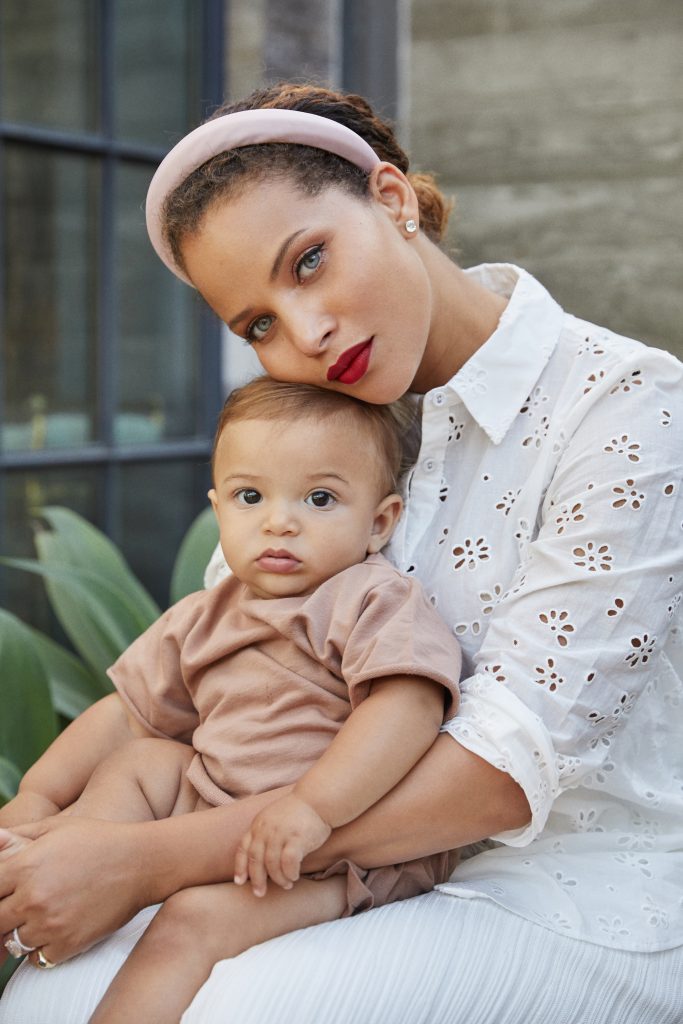
5 Helpful Ways to Talk to Kids About Race
When it feels like the world is spinning out of control, one thing we can do is look to our kids. After all, they are the future. So how can we be sure we’re raising socially aware children when the topics seem too tricky to tackle? Experts say the early you start, the better. Talking to kids about race doesn’t have to be as overwhelming as it seems, it only matters that you take that first step.
We recently asked mom of two and MAED founder Denise Vasi in our summer issue for her tips on how to talk to kids about race and in addition to watching documentaries like White Like Me and 13th, Vasi shared which Instagram accounts to follow (@theconsciouskid, for instance) and the reminder, “There’s not one right way to do it, but I would say, you don’t need to overcomplicate it.”
Vasi also goes on to share that the most important point to get across in these conversations with kids is simply, the facts. “Teach them about melanin in skin, about Black history, explain to your children that Black people and POC are treated different, acknowledge white privilege,” she tells Mini. “The more openly you discuss race and skin color the easier it will be for your children to identify bias and prejudice.”

MAED founder Denise Vasi with son Dries
KEEP SCROLLING FOR MORE IDEAS ON RAISING SOCIALLY AWARE KIDS OR CLICK HERE TO READ MORE OF VASI’S TIPS ON SPEAKING TO KIDS ABOUT RACE.
Address privilege early
Children are more in tune with their surroundings than we often think, so you might be surprised that talking about social differences is not such a new concept to them. According to Beatrice Fennimore, a children’s social justice advocate, “children recognize gender differences and skin color differences by age four or earlier— whether or not those differences exist in their own community.” The best course of action is to speak with your child about how these differences can make things more difficult for certain people and identify examples when you encounter them.
Make sure diversity exists in their toys, books and TV
Before you toss another toy in the cart, consider whether your child has enough diversity in their choices. Everything kids are exposed to from toys to books to TV shows should represent a wide range of identities to help them have a better understanding of all people. And don’t worry if your find your child engaging with those that don’t necessarily reflect you or your family’s personal values or beliefs. Fennimore tells Mashable that parents should still take the opportunity to discuss what they mean.
Let them have a voice
Whether we agree with it or not, children have their own perspective and parents need to listen. Don’t let your power as a parent get in the way of your child having a voice. Listening to what they think can help you learn more about your child and how their mind works.
Talk about current events
Today’s current events can be scary, let’s be honest, but it’s important to talk about them with your kids in an approachable way. As they get older, kids will notice current events and may have questions, so make it an open conversation. If a scary subject arises, ask them how they feel about it in order to help ease their worry.
Don’t bypass the problem
Remember that kids absorb everything. Inappropriate comments from family members at holiday gatherings, strangers on the street or even advertisements on TV— address the problems your child sees or hears and point out why they are not OK.
How do you help your child to be more socially aware?
Brush up on new parenting strategies with How Science Says to Raise Strong, Successful Daughters or read our Busy Parent’s Guide to Talking Politics.
Opening Image: Bridget Badore for Mini Magazine

